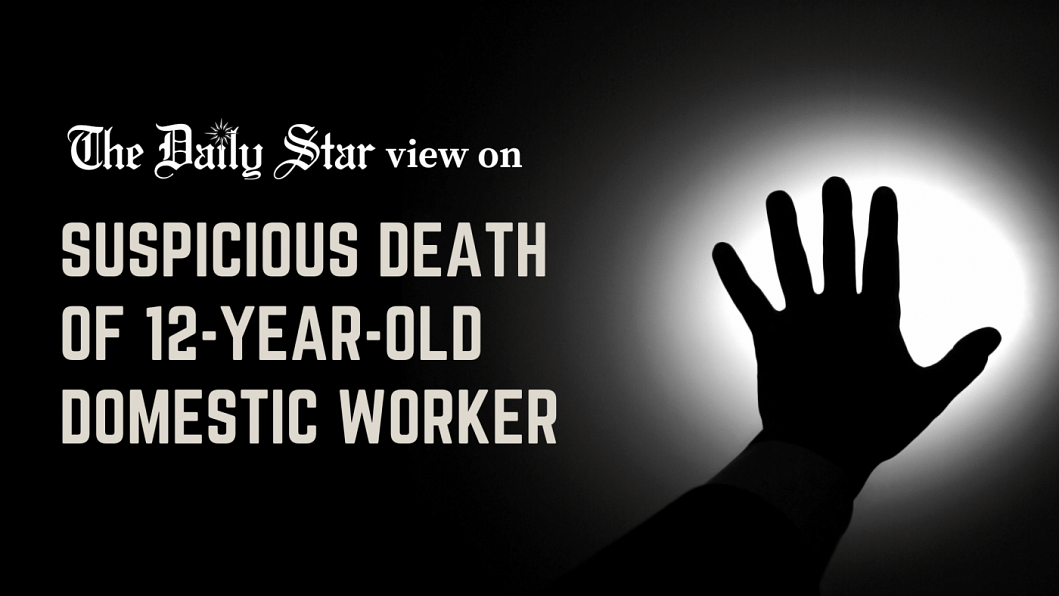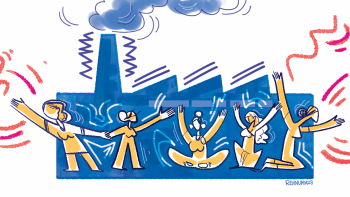Rape and death of child domestic worker must be probed

We are deeply disturbed by the report of the death – and possible rape – of a 12-year-old domestic worker in Rampura, Dhaka over a year ago, at the residence of lawyer couple Rajin Ahmed and Iffat Jahan Chowdhury (a flat owned by Rajin's father Kamal Uddin Ahmed, a retired bureaucrat). Although the girl's employers claim she committed suicide, her parents – with whom her last conversation had been that she was being tortured – believe that she was raped and murdered. For the poor family, it has been an uphill battle to convince the authorities to take their allegations seriously, despite clear evidence pointing to foul play.
According to a police inquest report, filed shortly after the incident, the victim's rectum was "abnormal," suggesting that she had been raped. The autopsy report, shared with the parents 10 long months later, stated that the "cause of death was asphyxia as a result of hanging, which is antemortem and suicidal in nature, but the sign of forceful sexual intercourse was present in the victim's body." We can't help but ask: why did the police file a case of unnatural death in the first place if there was suspicion of rape? Moreover, why did it take 10 months to file an autopsy report, which should take days, or at most weeks?
It is equally baffling that despite the crime having taken place in a flat – where entry and exit of outsiders is limited – the law enforcement officials seem to be at their wit's end to so much as file a probe report. After the victim's father filed a case with a Dhaka court accusing the lawyer couple of murder, the court first asked the Criminal Investigation Department (CID) to investigate the case. When the CID, after nine months, failed to produce a report, the court asked the Police Bureau of Investigation (PBI) to probe it, according to court documents. We can only hope that the PBI will do a better job of conducting a fair investigation and produce a credible report, considering the evidence of rape and based on who may have been present at the flat at the time of her death.
It is also worth asking whether DNA tests have been conducted on the male suspects in the building to match them with the DNA collected from the victim's body. We also wonder what happened to the victim's clothing, which would have contained the DNA of the possible culprit. If her clothes were destroyed before such an analysis could be made, police must explain why they did not collect the evidence. Given how crucial such evidence is for conviction, was failing to do so simply a matter of inefficiency or a result of the fact that the victim was poor and the perpetrator possibly someone powerful?
It is no secret that "justice" is an illusion for those from marginalised backgrounds. In a country where money and influence can buy everything, an overwhelming majority of cases of child domestic worker abuse fall through the cracks, with families eventually realising there is no prospect of justice and reaching a "compromise" for meagre amounts of compensation. We salute Iti Akter's parents for their unflinching quest for justice for their daughter, and demand a credible investigation into the untimely and unacceptable death of their child.


 For all latest news, follow The Daily Star's Google News channel.
For all latest news, follow The Daily Star's Google News channel. 









Comments